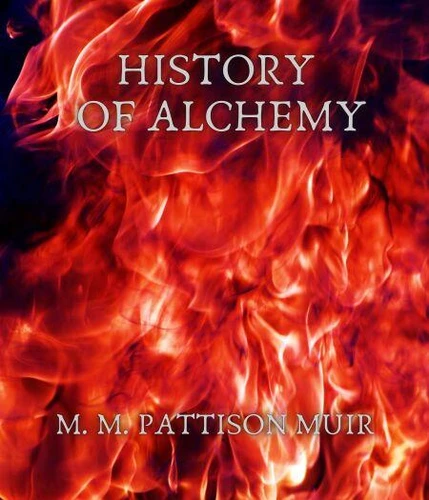History of Alchemy
Par :Formats :
Disponible dans votre compte client Decitre ou Furet du Nord dès validation de votre commande. Le format ePub est :
- Compatible avec une lecture sur My Vivlio (smartphone, tablette, ordinateur)
- Compatible avec une lecture sur liseuses Vivlio
- Pour les liseuses autres que Vivlio, vous devez utiliser le logiciel Adobe Digital Edition. Non compatible avec la lecture sur les liseuses Kindle, Remarkable et Sony
 , qui est-ce ?
, qui est-ce ?Notre partenaire de plateforme de lecture numérique où vous retrouverez l'ensemble de vos ebooks gratuitement
Pour en savoir plus sur nos ebooks, consultez notre aide en ligne ici
- Nombre de pages150
- FormatePub
- ISBN978-3-98551-141-9
- EAN9783985511419
- Date de parution23/07/2021
- Protection num.Digital Watermarking
- Taille3 Mo
- Infos supplémentairesepub
- ÉditeurPhoemixx Classics Ebooks
Résumé
The system which began to be called alchemy in the 6th and 7th centuries of our era had no special name before that time, but was known as the sacred art, the divine science, the occult science, the art of Hermes. A commentator on Aristotle, writing in the 4th century A. D., calls certain instruments used for fusion and calcination "chuika organa, " that is, instruments for melting and pouring. Hence, probably, came the adjective chyic or chymic, and, at a somewhat later time, the word chemia as the name of that art which deals with calcinations, fusions, meltings, and the like.
The writer of a treatise on astrology, in the 5th century, speaking of the influences of the stars on the dispositions of man, says: "If a man is born under Mercury he will give himself to astronomy; if Mars, he will follow the profession of arms; if Saturn, he will devote himself to the science of alchemy (Scientia alchemiae)." The word alchemia which appears in this treatise, was formed by prefixing the Arabic al (meaning the) to chemia, a word, as we have seen, of Greek origin.
The writer of a treatise on astrology, in the 5th century, speaking of the influences of the stars on the dispositions of man, says: "If a man is born under Mercury he will give himself to astronomy; if Mars, he will follow the profession of arms; if Saturn, he will devote himself to the science of alchemy (Scientia alchemiae)." The word alchemia which appears in this treatise, was formed by prefixing the Arabic al (meaning the) to chemia, a word, as we have seen, of Greek origin.
The system which began to be called alchemy in the 6th and 7th centuries of our era had no special name before that time, but was known as the sacred art, the divine science, the occult science, the art of Hermes. A commentator on Aristotle, writing in the 4th century A. D., calls certain instruments used for fusion and calcination "chuika organa, " that is, instruments for melting and pouring. Hence, probably, came the adjective chyic or chymic, and, at a somewhat later time, the word chemia as the name of that art which deals with calcinations, fusions, meltings, and the like.
The writer of a treatise on astrology, in the 5th century, speaking of the influences of the stars on the dispositions of man, says: "If a man is born under Mercury he will give himself to astronomy; if Mars, he will follow the profession of arms; if Saturn, he will devote himself to the science of alchemy (Scientia alchemiae)." The word alchemia which appears in this treatise, was formed by prefixing the Arabic al (meaning the) to chemia, a word, as we have seen, of Greek origin.
The writer of a treatise on astrology, in the 5th century, speaking of the influences of the stars on the dispositions of man, says: "If a man is born under Mercury he will give himself to astronomy; if Mars, he will follow the profession of arms; if Saturn, he will devote himself to the science of alchemy (Scientia alchemiae)." The word alchemia which appears in this treatise, was formed by prefixing the Arabic al (meaning the) to chemia, a word, as we have seen, of Greek origin.




